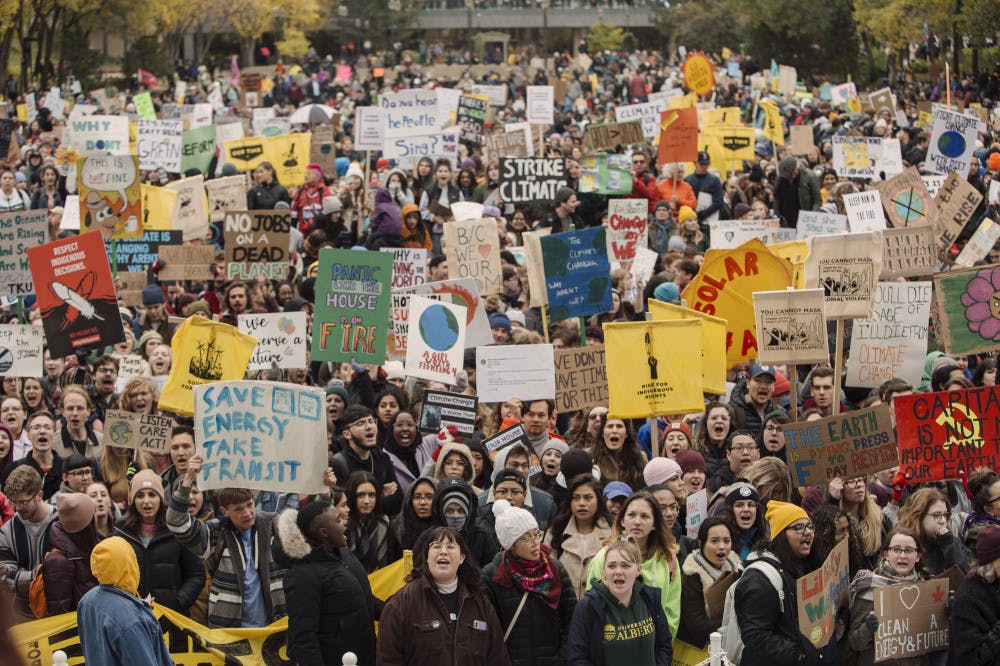On Sept. 20, a youth climate strike of unprecedented proportions stood at the forefront of the world stage. Now, two weeks later, that energy has died down to some degree in Gainesville’s corner of the world. This is a shame, because it’s our generation's responsibility to enact the change. The private sector still needs to be held accountable, the government still needs to be pressured and public sentiment still needs to be changed: and here lies the purpose of the Climate Reality Project.
The Climate Project, a precursor to the current organization, was founded in 2006 by former Vice President Al Gore and funded with the profits from his documentary “An Inconvenient Truth.” According to member Deborah Scheuer, the Climate Reality Project is an international activist group spearheaded by Al Gore with a mission to “catalyze grassroots efforts in support of the environment on a global scale.” Scheuer is a 60-year-old retired UF faculty member who worked as an associate professor in the College of Medicine.
“I’ve been interested in the environment my whole life. I grew up in Hawaii, where I learned to love the environment and the earth… So that’s why I retired early. I wanted to get involved,” she said.
Scheuer was trained as a Climate Reality leader in Atlanta in March. The Climate Reality Project operates, she said, by relating climate activism to local issues in the communities it hopes to reform. The project attempts to connect the macro of the climate crisis to smaller issues that may be impacting people's lives and energize communities to act on it. Its relationship with farmers is notable. Scheuer said that on one hand, there are a multitude of techniques farmers can use, under the umbrella of regenerative agriculture, which drastically decrease emissions and save money for the farmers themselves.
Gainesville is on the right track. According to City Commissioner David Arreola, there is a resolution in the works as the city has spent millions of dollars of land conservation and just recently purchased 750 acres in Gainesville. He also sponsored a resolution to commit GRU, a Gainesville energy company, to shift to 100 percent renewable energy within the next 25 years.
For individuals interested in getting involved or citizens with concerns, Arreola said there are a multitude of activist groups in Gainesville prepared to accept more members into their fold, and that he would be happy to listen to the concerns of any passionate parties.
I feel comfortable saying that Gainesville is on the right track as far as climate advocacy. Our communities are galvanized, our politicians are active and our environments are being protected. However, so much cannot be said for the rest of the country, which has been notoriously slow to change. I urge Gainesville’s students and visitors to advocate for radical change in their homes and across the country so our generation might have the chance to save the future on the verge of destruction.
Myles Gibbs is a UF journalism junior
Marchers gather for the Climate Strike in Edmonton, Alberta, on Friday, Sept. 27, 2019. (Amber Bracken/The Canadian Press via AP)






